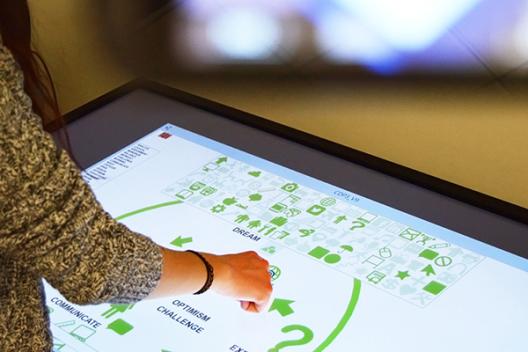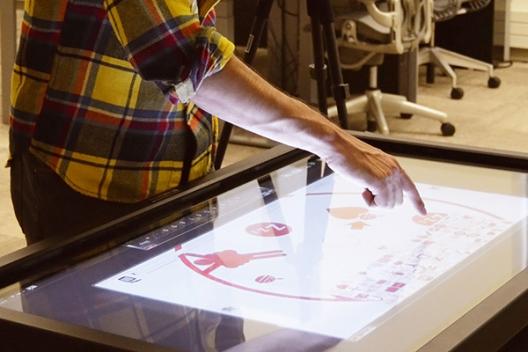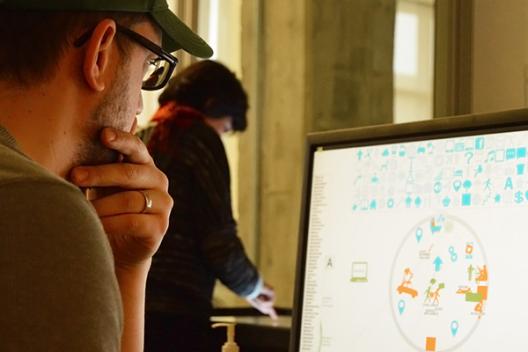Prototyping with Co-designers to Imagine Future Experiences
David McKenzie
MFA Design Research and Development, 2016
Project Description:
Today’s designers are tasked with going beyond products and graphics to create new experiences and services that thoughtfully consider the entire system of touchpoints and interactions. This new scope often requires designers to work across the research and design phases together with key stakeholders in order to gain a holistic view and generate solutions that address shared concerns. As a designer that was trained with a modernist set of design skills, I was curious to understand what parts of my experience as a product designer would help me be successful when tacking these complex concerns, and what new skills I might have to learn. In order to take on the challenge of designing for complex concerns, I chose to adopt a new design approach, learn new roles and utilize new media. My approach shifted from a modernist design approach (collaborating with peers and mentors) to a co-design approach (collaborating with stakeholders, peers, mentors). My role changed from a furniture designer to a design researcher. And finally, the materials and medium moved from prototyping and making physical objects to prototyping experience and systems with people. With this direction, I explored how my design skills such as sketching, prototyping and making could be used to understand experience and systems and help to engage multiple stakeholders with different perspectives as co- designers around a shared complex problem (reimagining Introductory Physics) to inform and inspire the co-design process. I used a research through co-design approach so that I could gain first-hand experience of the new considerations. I conducted a series of interviews, co-creation workshops and iterative prototyping with a small, select group of stakeholders (co-designers) to generate new ideas and understanding of what the future learning experience for an Introductory Physics student at The Ohio State University might be. I developed a greater understanding of the co-design process and the roles the designer, co-designer and prototypes play. The outcome of this study points towards new and emerging roles that designers and researchers should consider if they are to engage in the practice of co-design, how prototypes can support early ideation and continued involvement by co-designers, and the benefits of working with a mixed group of stakeholders in a participatory manner that actively engages the co-designers to create and critically think.
URL: http://rave.ohiolink.edu/etdc/view?acc_num=osu1468586592
Committee Members:
Elizabeth Sanders, Maria Palazzi, Andrew Heckler
Keywords:
Co-design, Participatory Design, Learning Sciences, System, Scenario



